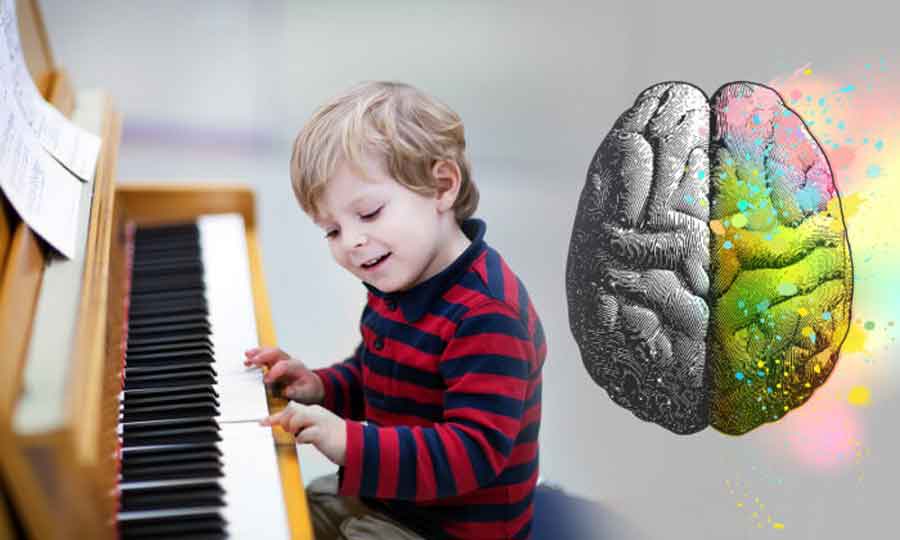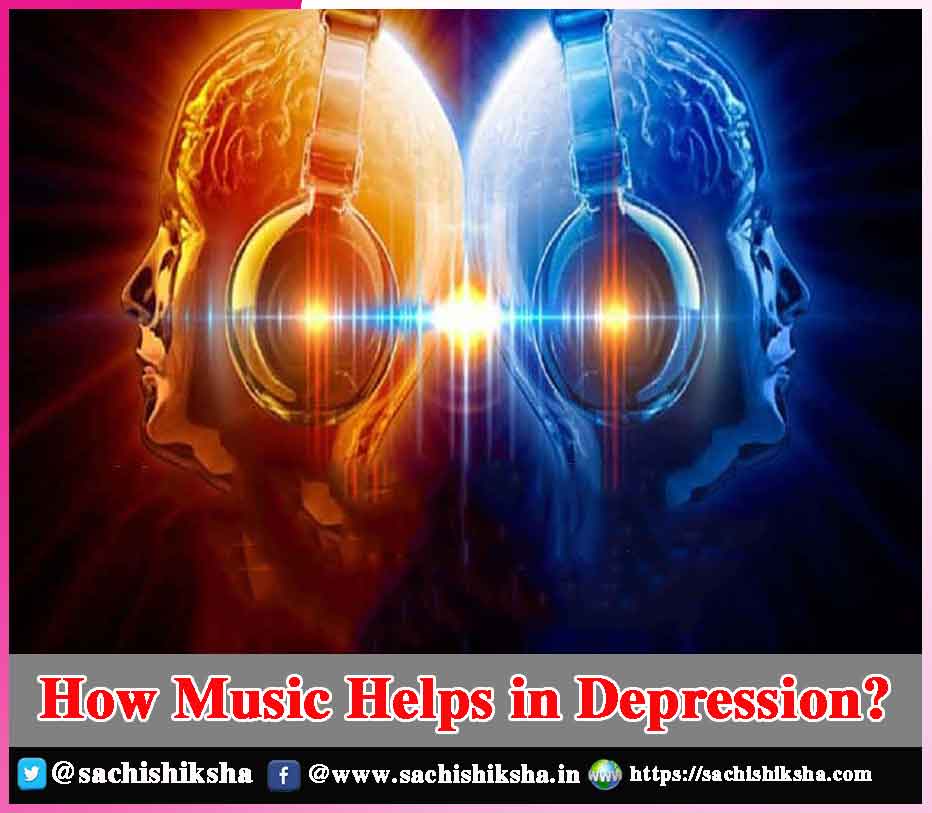How Music Helps in Depression?
Introduction: Music is a universal language that is found in all cultures and societies around the world. Its ubiquitous characteristic makes it easily available to all, thereby making it an integral part of human culture and is present in almost every aspect of our daily lives. It’s a type of organised sound created with a specific artistic intent. We come across different sounds in our routine lives, starting from the loud sound when the alarm goes off in the morning to the clanging of dishes in the kitchen and the honking of numerous horns while we are caught up in a heavy traffic.
Not all sounds become music. Musicians and composers take inspiration from such sounds to produce a meaningful output in the form of music which is organised sound with a distinctive rhythm, melody and harmony that elicits an emotional or aesthetic response from the listener. It can be heard in various forms and genres, such as classical, pop, rock, jazz, hip-hop, electronic, etc. Music is a versatile art form that can be enjoyed in a variety of contexts and plays a vital role in controlling various sicknesses affecting the mental health of an individual.
Also Read :-
- Music and Psychological Effects
- Importance of Music in daily Life
- Music has the power to heal
- Chirping Birds – A Soothing Music: Relaxing Nature Sounds – Great For Relaxation, Stress and Anxiety
Table of Contents
Varied Effects of Music:

As per researchers, music therapy together with proper medication helps people with depression to overcome it successfully. Just as all types of sound do not become music, similarly not all types of music helps to alleviate depression. Research has shown that listening to certain types of music, such as classical or meditative music, can have a calming effect on the mind and body and reduce symptoms of depression. On the other hand, listening to aggressive or negative music, such as rock music or sad ballads, can actually exacerbate feelings of sadness and hopelessness.
Depression & Music:
Depression is a complex, isolating and multifaceted condition that affects people of all ages and backgrounds; caused by a variety of factors, including genetics, prolonged and excessive stress and tension conditions, life experiences, and other medical conditions. It is characterized by persistent feelings of sadness, hopelessness, and worthlessness, which can significantly impact a person’s quality of life. Depression can also lead to side effects such as fatigue, loss of appetite, mood swings, rapid heartbeat, restlessness, and sleep disturbances, making it even more challenging to manage.
While there are several treatments for depression, including medications, psychotherapy, and lifestyle changes, these may not work for everyone, and many people still struggle to find relief from their symptoms. Though listening to music alone doesn’t heal depression completely, but it plays a major part in the healing process together with other medications. Listening to music works as a distraction from the negative thoughts and feelings that can accompany depression.
As per scientists music has been found to be a powerful tool in managing depression because it has the ability to affect the brain in various ways. For example, it can stimulate the release of serotonin, endorphins and dopamine which are the body’s natural happy chemicals. This can lead to an increase in positive emotions and a reduction in negative emotions, such as sadness and anxiety. Moreover, listening to music can activate various regions of the brain, including the limbic system, which is responsible for regulating emotions.
Classical & ambient Music:
Stress plays a significant role in the development of depression and can exacerbate its symptoms. Reducing tension and increasing relaxation can both be achieved by listening to soothing music. This helps to slow down the breathing and heart beat rate, and promote a sense of calmness and tranquility. There are different types of music which are used in the therapy for depression. Classical music has been found to have a calming effect on the mind and body, which can help to reduce symptoms of depression.
Slow and soothing classical music can have a relaxing effect on the mind and may help alleviate feelings of anxiety. Instrumental music, such as piano, guitar, or violin, can help to create a peaceful and calming environment. It can also help to reduce feelings of overwhelm and anxiety by providing a distraction from negative thoughts. Ambient music has a slow and steady tempo which can help slow down racing thoughts and promote a sense of calmness. Additionally, the absence of lyrics in ambient music can allow the listener to focus on the music and create a meditative state. In general music with slower tempos and gentle melodies that is uplifting and has positive lyrics are helpful in improving mood and reducing symptoms of depression.
Incorporate Music into Daily Life:
For people suffering from severe depression and are under medication, it’s advisable to get the guidance of a trained music therapist to develop a specific treatment plan. But for others who are in the early stages of depression, anxiety, stress and tension, self music therapy provides relief. There are several ways in which music can be incorporated into our daily life to manage depression.
One way is to create a playlist of music that makes you feel happy and energized. This always comes in handy during mood swings or when you are feeling low. Playing a musical instrument or singing can be a great way to release stress and reduce depression. Another way to use music for managing depression is to participate in a group music therapy session. As a result, people can connect with others who are going through similar circumstances and feel a sense of comfort and support.
Conclusion: Overall, incorporating music into our daily routine can be an effective way to manage depression and improve our mood, mental health and well being.













































